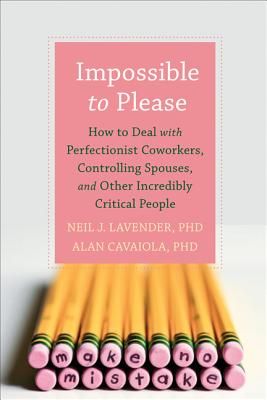Perfectionism
Ebenezer Scrooge: The Quintessential Controlling Perfection
Let's hear the story again and learn something new.
Posted December 24, 2014


Prior to his epiphany on Christmas Eve, Scrooge is depicted as the embodiment that all that so common to the controlling perfectionist. In addition to his miserliness which have become the hallmark of his persona, we also see evidence of rigid adherence to rules (when he chides Bob Marley for “watching the clock” or the audacity to want Christmas Day off to spend with his family.
Scrooge has difficulty expressing any warmth towards his Nephew Fred or his fiancé. He abusively criticizes his colleagues who ask for a donation for the poor and when they ask him, “do you wish to remain anonymous (in your making a donation)? Scrooge replies, “ I wish to be left alone, good day sir”.
There is little doubt that Scrooge was a meticulous accountant who is overly scrupulous in his accounting duties. It is said that character of Ebenezer Scrooge was based on humiliating experiences that Charles Dickens had suffered as a child after his father was imprisoned and his family was left in poverty. Perhaps not coincidentally, Ebenezer also experiences parental abandonment and after the death of his mother in childbirth, Ebenezer is shipped off to a boarding school and is basically abandoned by his father. It is conjectured that this parental abandonment was at the root cause of Scrooge’s cold, miserly personality. Remember it is The Ghost of Christmas Past who shows Ebenezer the time when his fiance’ Belle had broken off their engagement because he was becoming too obsessed with money (also reflective of the controlling perfectionist’s miserliness and obsession with material possessions.
Interestingly, Charles Dickens was not too far off from contemporary theories that seek to explain the causal factors of the controlling perfectionist personality. When confronted with a controlling perfectionist in the workplace of in interpersonal relationships there are many of us who would like to escape that situation like Belle did when she broke off her engagement to Ebenezer. Some of us are not as fortunate to have this option. So let us leave you with this holiday treat (or recommendation). Imagine as you’re watching your favorite rendition of Christmas Carol over holidays that the character of Bob Cratchit is not being played by the likes of the loveable Gene Lockhart (as in the 1938 version starring Reginald Owen as Scrooge) but rather imagine If you will, that Cratchit is being played by none other than our fellow New Jersey native, Joe Pesci. Now imagine how Pesci might respond when Scrooge says to him “Watching the clock again eh Cratchit?” or “I supposed you’ll be wanting all of Christmas Day off again? God forbid you might work and make something of yourself”. So how would Joe Pesci respond? When confronted with controlling perfectionists in your life you might even think of the acronym WWPD (what would Pesci do?) as a way to guide your responses.
Just don’t break anyone’s kneecaps!
Happy Holidays!!
Dr. Cavaiola is co-author of:

all photos used by permission


